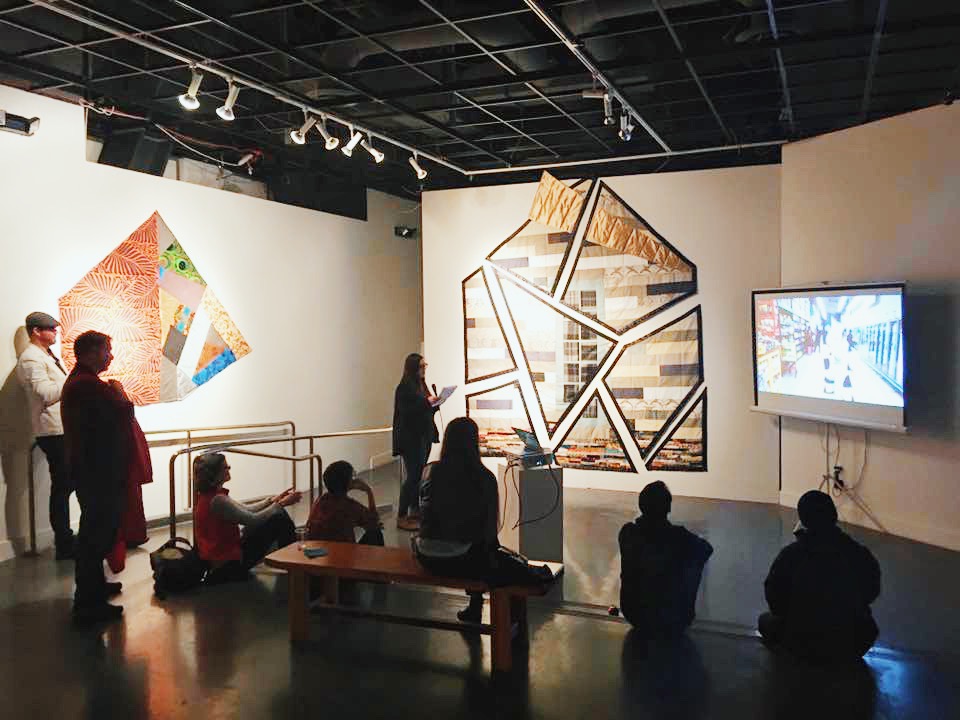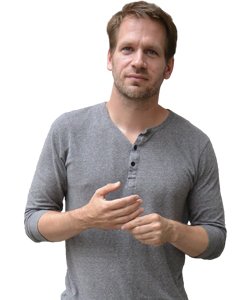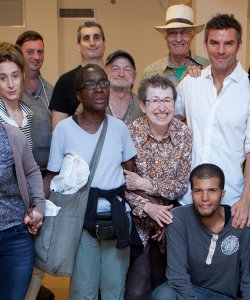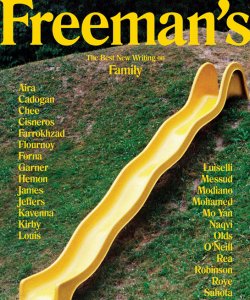Natalia Mount on Pro Arts Gallery in Oakland
Natalia Mount is a dynamic cultural producer with extensive experience in arts leadership, innovative programming, development and communications. Mount has worked at nationally significant institutions such as MoMA PS1 and Clocktower Productions, both in New York City. Currently, Mount is the executive director of Pro Arts in Oakland.
 Once a month, poets, writers, visual artists, and musicians come together at Pro Arts Gallery in downtown Oakland and collaborate on a cross-genre presentation of new work entitled the Hybrid Series. To date, Pro Arts has hosted poets and writers Sara Mumolo, Emily Hunt, Harmony Holiday, Norma Cole, Gillian Olivia Blythe Hamel, Candace Eros Díaz, and Louise Mathias.
Once a month, poets, writers, visual artists, and musicians come together at Pro Arts Gallery in downtown Oakland and collaborate on a cross-genre presentation of new work entitled the Hybrid Series. To date, Pro Arts has hosted poets and writers Sara Mumolo, Emily Hunt, Harmony Holiday, Norma Cole, Gillian Olivia Blythe Hamel, Candace Eros Díaz, and Louise Mathias.
Conceived and curated with the aim to serve as a departure from the more conventional mode of presentation of material, the Hybrid Series swaps the standard practice of same-genre groupings—such as the poetry reading, artist talk, music performance or lecture—for that of a community gathering, a format that is open, fluid, and accessible to diverse audiences. The main idea of the Hybrid Series is to actually connect ideas, text, image, and sound. We believe that the hybridization across life-spheres and aesthetic experiences yields positivity and promotes cultural symbiosis and plurality across genres, elevating the artist above the hierarchies inherent in the myopic nature of academically grounded work. Along with our other programs, the Hybrid Series at Pro Arts is designed to expand the possibilities for experimentation and innovation in contemporary art. After only four installments of this series so far, we are convinced that the platform we have created to accommodate the series can and will continue to foster new collaborations among artists.
To give a taste of what you might expect should you attend, I will summarize here our first Hybrid Series event that took place on March 12, 2016. We opened the night with an artist talk by Adia Millett who discussed her practice as it related to her solo exhibition entitled Re-Connect (installed at Pro Arts at the time). Topics that prompted larger conversation with the audience revolved around questions related to feminist aesthetics, abstraction, and community identity. Next, Elisabeth Nicula presented her new work entitled Sense Memories, an exploration into image and experience. For Sense Memories, Nicula searched through her hard drive and cell phone for snapshots that she had forgotten, treating her digital cache as a source of found objects that are discrete moments from her life, remembered by machinery. Human memories are imperfect, exaggerated, or conflated, but exist in the fullness of an inner life.
SL Morse performed “The Myth of Sisyphus by Albert Camus”—a conceptual rendering of the seminal work translated into Morse code. SL Morse performs modernist literature through Morse code translations from text to musical notation for a drum kit. “The Myth of Sisyphus by Albert Camus” followed the arc of the essay, where Sisyphus is condemned to ceaseless, pointless labor, has a temporary reprieve, then returns to pushing a heavy rock up a hill that always falls down, finally reconciling himself to his fate that absurd labor is preferable to nonexistence.
Last, audiences enjoyed a reading by Oakland-based poet Sara Mumolo, who read from her collection of poems, Mortar (Omnidawn, 2013). In accompaniment to her reading, Sara chose to screen various repetitive yet entertaining videos, found on the internet and YouTube. This gesture both complemented her words and provided another access point to her ideas. By straddling both worlds (text and moving image), Sara was able to break away from the mold of a traditional format for poetry reading—shifting her perspective, the perspective of the audience, and the notion of what poetry reading might entail.
Photo: Pro Arts Gallery Hybrid Series. Photo credit: Pro Arts.
Major support for Readings & Workshops in California is provided by the James Irvine Foundation and the Hearst Foundations. Additional support comes from the Friends of Poets & Writers.











